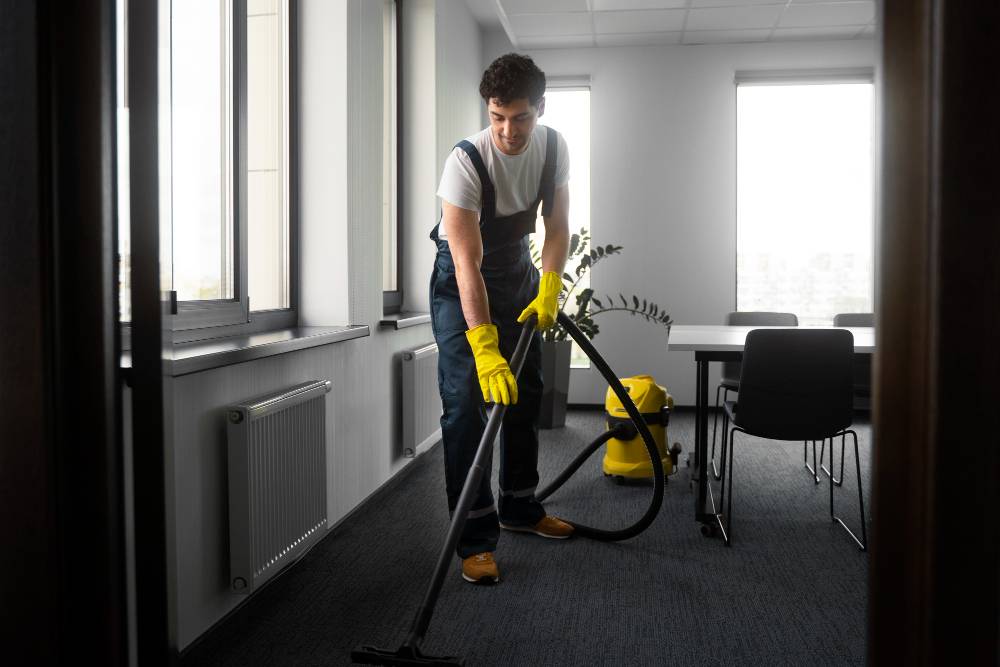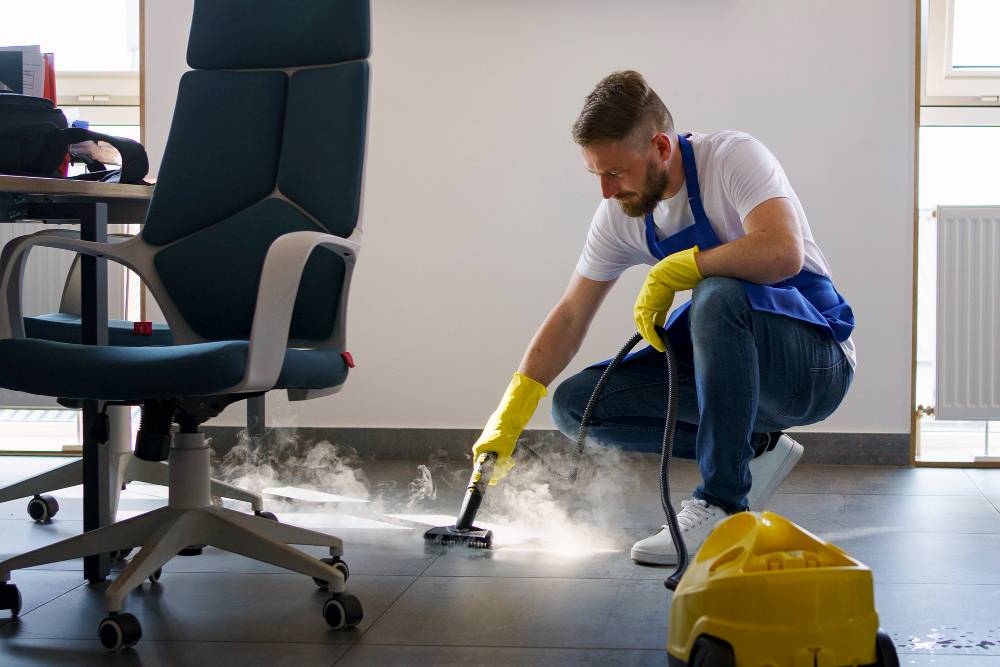Cleanliness plays an integral role in the success of any business. Beyond maintaining appearances, a clean workspace contributes to the health and productivity of employees, impresses clients, and ensures compliance with industry regulations.
While daily cleaning routines handle surface-level tidiness, deep cleaning goes a step further, targeting hidden dirt, allergens, and bacteria.
This guide delves into the importance, process, and best practices of deep cleaning for businesses.
Why Deep Cleaning Matters for Businesses?
Deep cleaning is not just about appearances; it’s a proactive measure to create a healthier environment. Over time, dust, allergens, and germs accumulate in areas that regular cleaning can’t reach.
These hidden contaminants can lead to employee illnesses, absenteeism, and reduced productivity.
For businesses in industries such as healthcare, hospitality, and food service, deep cleaning is a regulatory necessity to ensure the safety of both employees and customers.
Moreover, a well-maintained space reflects a company’s professionalism. Clients and visitors are likelier to trust and engage with a business that prioritizes cleanliness.
Deep cleaning also prolongs the life of carpets, flooring, and office furniture, reducing repair and replacement costs over time.
The Process of Deep Cleaning
Deep cleaning is a meticulous process that requires attention to detail and proper planning. It typically begins with a comprehensive inspection to identify areas that need extra care.
Decluttering is a crucial first step, as it clears the way for cleaners to access hidden spots. Dusting high surfaces, including light fixtures, vents, and shelves, is done before addressing lower levels to prevent re-contamination.
Sanitization is a key aspect of deep cleaning, particularly for high-touch areas like door handles, desks, keyboards, and communal appliances.
Carpets and upholstery, which often harbor allergens and bacteria, require professional steam cleaning to ensure thorough sanitization.
Hard floors may need scrubbing, polishing, or waxing to restore their shine and protect them from wear and tear.
HVAC systems are another critical component of deep cleaning. Dirty air ducts and filters can circulate dust and allergens throughout the building, affecting air quality. Cleaning these systems not only improves air circulation but also enhances energy efficiency.
Bathrooms and kitchens demand special attention due to their high usage and potential for bacterial growth.
Deep cleaning these spaces involves scrubbing tiles and grout, sanitizing fixtures, and ensuring proper drainage.
Kitchen appliances like refrigerators, microwaves, and dishwashers should be cleaned inside and out to maintain hygiene standards.
Key Areas Requiring Deep Cleaning
Certain areas within a business space are more prone to dirt and grime buildup and therefore require extra care during deep cleaning:
- Workstations and Offices: Dust and sanitize desks, chairs, and computers to prevent the spread of germs in shared spaces.
- Carpets and Flooring: Use steam cleaning for carpets and polish or wax hard floors to enhance durability and appearance.
- Bathrooms: Thoroughly clean fixtures, tiles, and ventilation to eliminate bacteria and odors.
- Common Areas: Focus on high-traffic zones like lobbies, break rooms, and conference rooms, ensuring they are both clean and inviting.
- Entrances and Exteriors: Clean windows, doors, and signage to create a positive first impression for visitors.
The Role of Professional Cleaning Services
While some businesses may handle deep cleaning in-house, hiring professional services often proves to be more efficient and effective.
Professional cleaners are equipped with advanced tools and industry-grade products that deliver superior results. They also adhere to safety and regulatory standards, which is particularly important for specialized industries.
Additionally, outsourcing deep cleaning allows businesses to focus on their core operations without the added burden of managing intensive cleaning tasks.
Many cleaning companies offer customizable plans customized to the specific needs of a business, ensuring a cost-effective and comprehensive solution.
Maintaining Cleanliness Between Deep Cleans
To maximize the benefits of deep cleaning, businesses should implement regular maintenance routines. Encourage employees to keep their workspaces tidy and provide easy access to cleaning supplies.
Scheduling periodic inspections can help identify problem areas before they escalate. In high-traffic spaces, increase the frequency of cleaning to address daily wear and tear. For long-term results, businesses may also consider adopting eco-friendly cleaning practices.
Many green cleaning products are effective, non-toxic, and biodegradable, making them a sustainable choice for maintaining cleanliness without harming the environment.
Conclusion
Deep cleaning is a critical component of maintaining a safe, healthy, and professional business environment.
By addressing hidden contaminants and high-traffic areas, it ensures a space that is not only visually appealing but also conducive to productivity and well-being.
Whether handled in-house or by professionals, a thorough deep cleaning process lays the foundation for a workspace that employees and clients can trust and appreciate. Prioritizing deep cleaning today safeguards the future health and reputation of any business.




